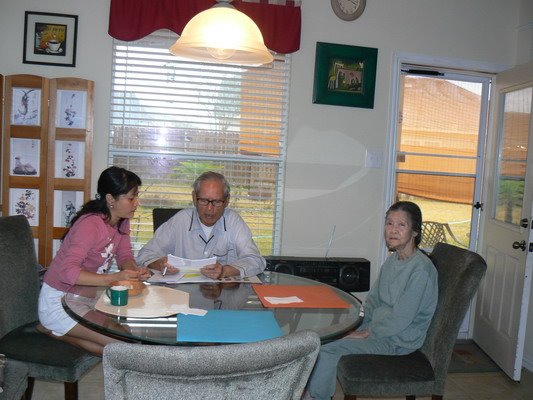The second thing you’ll notice take place within you: you begin to see your inclination and desire to persuade and convince others. Then you begin to listen more attentively, finding yourself in “the secret embrace” of the “primal union” that Lao-tzu describes. Your need to be knowledgeable or dominant is replaced by the deep realization that it’s all irrelevant, and you lose interest in seeking approval. Living in silent knowing becomes the process that casts your existence in a different light – you have less of an edge and feel settled, softer, and more centered.
… I’d sum it up this way: Those who care the least about approval seem to receive it the most. Since such individuals aren’t concerned with how they’re perceived, either honorably or in disgrace, they don’t seek praise or run from it. While their calm wisdom may make them appear to be aloof, they actually end up gaining the respect of everyone.

Photos by chị Hòa
 Block all the passages! Get honest with yourself about wanting to win the favor of others. You don’t have to prove anything to anyone, and you’ll never succeed by droning on and on. Remember that “those who talk do not know,” or as one translation of this verse simply states, “Shut your mouth”. Silence is your evidence of inner knowing. Talking to convince other actually says more about your need to be right than their need to hear what you have to say! So rather than trying to persuade other, keep quiet … just enjoy that deeply satisfying inner awareness.
Block all the passages! Get honest with yourself about wanting to win the favor of others. You don’t have to prove anything to anyone, and you’ll never succeed by droning on and on. Remember that “those who talk do not know,” or as one translation of this verse simply states, “Shut your mouth”. Silence is your evidence of inner knowing. Talking to convince other actually says more about your need to be right than their need to hear what you have to say! So rather than trying to persuade other, keep quiet … just enjoy that deeply satisfying inner awareness.
Use the acronym BUSS to remember the four directives of this verse.
- Blunt your sharpness. Do this by listening to yourself before you let your judgments attack someone else. A better course of action is to just listen, and then silently offer loving compassion to both yourself and the other person.
- Untie your knots. Detach from what keeps you tied to worldly patterns. Untie the knots that bind you to a life that’s dedicated to showing profit and demonstrating victory, and replace them with silently contemplating the Tao in “the secret embrace”.
- Soften your glare. Notice when your need to be right is glaringly obvious, and let the soft underside of your being replace your rigid stance. Your impulse to glower at external events is alerting you that you’re out of touch with your inner silent knowing.
- Settle your dust. Don’t kick it up in the first place! Realize your inclination to stir up dust when you feel a diatribe about to erupt on how others ought to be behaving. Stop in the middle of pounding the table or angrily screaming and just observe yourself. Since your emotions are like waves on the ocean, learn to watch them return to the vast, calm, all-knowing Source.


1 comment:
In het Nederlands is er een spreekwoord, spreken is zilver, zwijgen is goud. Soms is niets zeggen beter dan wel iets zeggen.
Post a Comment